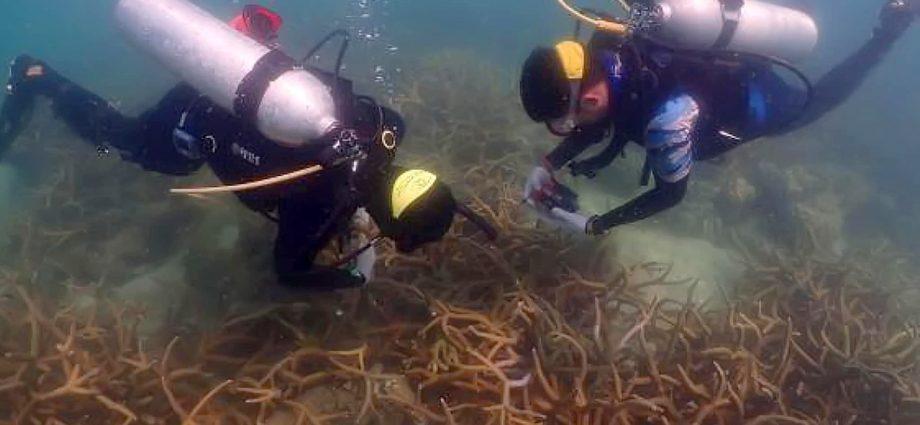PTTEP and Department of Fisheries team up to develop reefs using carbon dioxide-based mineral stones
PUBLISHED : 29 Sep 2023 at 18:20

The Department of Fisheries and PTT Exploration and Production Public Company Limited (PTTEP) have signed an agreement on developing artificial reefs from carbon dioxide-based mineral stones.
The memorandum of understanding also aims at further studying production of the material using a similar process that helps combat global warming.
Montri Rawanchaikul, chief executive and president of PTTEP, said the project focuses on applying technology in the process of transforming carbon dioxide into mineral stones to make sturdier reefs.
The technology is expected to help transform the chemical structure of carbon dioxide in concrete into calcium carbonate that can be deployed in reef production.
The reefs are meant to be habitats for sea creatures where they can live, breed and take refuge.
The Department of Fisheries has been working on artificial reef production since 1978 in line with its interest in sustainable fishery management, said director-general Chalermchai Suwanrak.
“This project aims to help with sea creature management as well as the recovery of their natural habitats,” he said. “The reefs are also aimed at improving the quality of life for fisherfolk as they can help with local fishing methods.”
The development’s focus also involves global warming. According to research, rising temperatures increase stress on sea creatures’ metabolic systems, which affect their breeding and growth.
Mr Montri said the artificial reefs responded well to the company’s aim to reduce carbon emissions, as PTTEP is looking to achieve net zero emissions by 2050.
PTTEP is keen on projects that lead to lower carbon emissions, such as the carbon capture and storage (CCS) project behind the country’s first CCS gas storage and refinery hub at natural gas platforms in the Gulf of Thailand.
PTTEP hopes to reduce the severity of global warming while helping the country achieve a goal promised to the United Nations to reach net zero emissions by 2065, said Mr Montri.

